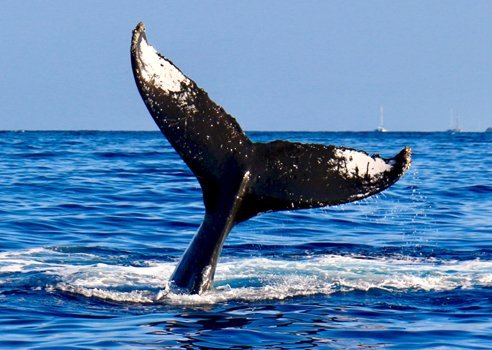Reading time: Less than 1 minute
Increase your vocabulary and you’ll make your writing much more precise. That’s why I provide a word of the week. Today’s word: flensing…
When I read the marvellous historical novel Hamnet and Judith — which tells the (imagined) story of Shakespeare’s son, Hamnet, who died as a young man — I was duly impressed by the luminous writing style of author Maggie O’Farrell.
And, moreover, the book allowed me to collect several new words, including flensing. Here is how O’Farrell used it:
The shock of a slap landing, sudden and sharp, from above; the flensing sting of a wooden instrument on the back of the legs…
Flensing, it turns out, is the removal of the subcutaneous fat of whales (known as blubber), separating it from the animal’s meat. Processing the blubber into whale oil was an important step that made whale a stable — and saleable — commodity.
The origin of the word is thought to be Danish (flense), dating back to 1814. It is also thought to have originated from other Germanic words beginning with the letters fli, which refers to “cutting, splitting.” Other examples include flint, and flinders.
In the use by O’Farrell, she is also, obviously, referring to a cutting slash by a wooden stick or board.


